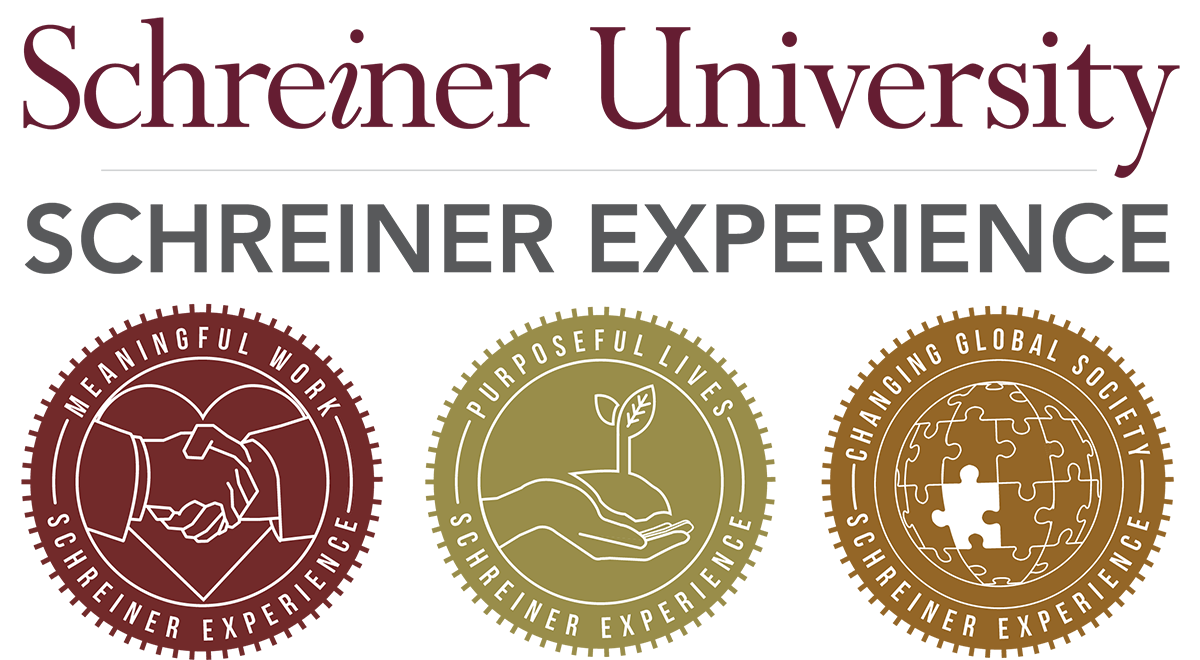
Working in a lab isn’t the only option for science majors. Check out these six unexpected but awesome STEM careers you should consider pursuing after college.
by Mark Rowh
Freelance Writer
Last Updated: Jun 27, 2022
When you imagine a scientist, chances are a white-coated figure working in a lab comes to mind. While that assumption may be accurate, it’s far from the only possibility. When it comes to career options, a wide range awaits those with a background in science. “Those who study science can get jobs doing most anything,” says Dr. James Sterling, Vice President of Academic Affairs at the Keck Graduate Institute in Claremont, California. “Employers like to hire smart people who can understand what it takes to make and sell products or provide customer support in all kinds of industries.”
In fact, the range of career options for STEM majors is surprisingly diverse. Hidden scientists play important roles all around us. “Most people would be surprised to learn that there are people with science backgrounds working in so many fields,” says Dr. Shirley Malcom, Director of Education and Human Resources Programs at the American Association for the Advancement of Science. “They tend to think of them as being largely professors, but science is terrific preparation for so many things.” Here is an overview of just a handful of them.
1. Scientific or technical writer
In a technological world, documenting and explaining scientific information—particularly to those who do not have a background in science—is a key function. People who understand science and also communicate well meet an ongoing demand. Technical writers create detailed, highly accurate written information, such as how-to manuals and guides. They describe processes, develop instructions, and otherwise create useful documentation not only in manufacturing but in many other areas. Take the aircraft mechanic who follows instructions for replacing an engine part or the homeowner assembling a backyard play set—both rely on the work of technical writers.
Science journalism
Some writers specialize in science journalism. Typically, this role is less narrowly focused than that of technical writers. Instead of developing manuals or product specifications, science writers focus on explaining scientific info to a general audience. This may involve writing magazine articles, books, newsletters, or blogs. From an article on the discovery of new exoplanets to a book on biotechnology, the work of science writers combines scientific understanding with the ability to communicate clearly and effectively.
Public relations
Using the same type of skills, other writers work in public relations. This involves writing and sharing science-related information on behalf of the organizations they represent. Jennifer Donovan, Director of News and Media Relations at Michigan Technological University, writes about scientific research conducted by professors. “I translate science into interesting, everyday language that helps people understand what scientists are doing and why it matters,” she says. “Without a fundamental understanding of science and scientific thinking, I could not serve as this bridge between researchers and the general public.” Formerly a medical reporter for a newspaper, Donovan points out that her career, like many others, doesn’t involve test tubes or complicated mathematical formulas. “A basic understanding of the sciences and the way scientists think and approach problems enables me to use my writing talent to make science more accessible to everyday people,” she says.
2. Genetic counselor
Genetic counselors evaluate the risks of inherited medical conditions. The information they provide can be vital in helping families make health care and lifestyle decisions. Without the basic understanding of scientific principles that underpins the work of qualified counselors, the intricacies of how genetics and genomics affect people would be difficult to comprehend. This is a field that can be especially promising for the technology savvy, according to Jennifer Hoskovec, who directs prenatal genetic counseling services at the University of Texas Health Science Center in Houston. “Today, we have technology that allows us to understand the human genome like never before,” she says, noting that the number of available genetic tests to explain human disease is growing daily.
Typically, genetic counselors work one-on-one with patients. They serve as part of a health care team along with doctors, nurses, therapists, and other professionals. Some are employed in medical graduate education or private industry, while other roles include patient advocacy, community education on genetic disease, and public policy. “For students who enjoy both science and keeping pace with technological advances, the field of genetics and genomics can be fascinating,” Hoskovec says.
3. Science librarian
The staff in high schools and smaller public libraries tend to be generalists, but in larger libraries and research-based organizations, some librarians focus on the sciences. They combine educational preparation in library science with scientific knowledge to serve as information specialists. Dealing with everything from electronic databases to printed materials, they assist researchers in obtaining books, journals, and other resources. Science librarians work in college and university libraries, medical facilities, commercial database companies, government agencies, and private corporations. Some specialize in areas such as the life sciences or physics. It all depends on the organization’s needs.
Deborah Peoples, a science librarian at Ohio Wesleyan University, says the work is stimulating. “Every day is different; it is never boring or routine,” she says. “I work to link science professors and science students to the information they need to understand their science, complete their laboratory experiments, and develop their research.” She often visits classrooms to introduce students to research methods and materials they will use in their courses. “Sometimes these classes are outside of my specialty, such as geology or physics,” Peoples says. “But because of my background in natural sciences, I’m still able to communicate effectively with these students and evaluate the information they need.”
4. Program administrator
Scientific pursuits can be complicated. For every program involving research, education, or other science-related activity, someone must coordinate the work involved, support the efforts of personnel, and provide management oversight. Project managers typically have a background in science, but they focus their efforts on applying management and people skills rather than direct scientific tasks, according to Dr. Alan Seadler, Associate Provost for Research and Technology at Duquesne University. He’s used such a skill set to direct a clinical evaluations group, manage a systems engineering group, and lead a small nanotech company. Now in his higher education role, he directs a college Biotechnology program and is responsible for the office of research at his university, which deals with grants and research funding. While such work is demanding, Seadler says it is also enjoyable. “Management of business organizations and teams of scientists is both very exciting and a lot of fun,” he says. “Many of my fondest memories are of groups of professionals in companies who were working together to solve problems.”
A related career path involves working for one of the thousands of associations that exist to serve the interests of their members or the public. Some of these organizations focus on specific occupations or professions, while others promote everything from social agendas to personal hobbies. For many, at least some relationship with science is part of the mix. Just a few examples include the American Association of Petroleum Geologists, the National Weather Association, the American Astronautical Society, the International Meteor Organization, the National Association of Environmental Professionals, and the Biotechnology Industry Organization. Association staff members serve in a number of roles. Positions such as executive or associate director, education coordinator, public relations manager, and coordinator of membership services are just a few of the jobs held by science-minded professionals in these organizations.
5. Sales representative
One of the most common jobs around is selling, whether in a retail store or through a wholesale business. But when it comes to scientific sales careers in a wide range of technical fields, a solid underpinning in science is a must. It can lead to jobs in the pharmaceutical industry, for example, where sales pros provide an important link between manufacturers and the medical community. According to the National Association of Pharmaceutical Sales Representatives, basic requirements for this work include familiarity with a company’s products and the therapeutic areas they are used to treat, understanding of the research and development process, and the ability to keep up with clinical trials and other advances. Pharmaceutical sales reps provide information to health care professionals, enter into sales agreements, and perform related tasks in a fast-changing, knowledge-based field.
Technical sales reps in other areas also apply specialized knowledge to their work in selling everything from laboratory equipment to computer software. In fields such as biotechnology, chemistry, and engineering, they represent the interests of manufacturers and other providers of products and services. In addition to “sales representative,” job titles include field representative, applications specialist, and account manager. Seadler notes that a special challenge in this field is serving both employers and clients. “It involves both understanding the technological needs of the customer and the technology of the company,” he says.
6. Legal specialist
When a new product or process is invented, the matter of ownership must be established and the rights of the owner protected. That’s the foundation for the work of patent attorneys and agents, who work with researchers to file patents and develop other documents. Patent agents come from specialized backgrounds to work with “intellectual property,” but they do not provide legal advice. Patent attorneys, on the other hand, have attended law school and passed the bar exam.
Some professionals in this area start out as agents and become lawyers later. In either case, studies in science or technology are key parts of the career path. Some health care careers offer similar possibilities in the life sciences, as well as physics and other fields. That knowledge base can then be combined with legal expertise in roles such as nurse consulting. According to the American Association for Legal Nurse Consultants, practitioners in this field act as uniquely qualified and valuable members of the legal team. They provide advice and other information on medical legal matters. A nurse consultant may testify as an expert witness in a court case, provide critical analysis of health care records and medical literature, or otherwise serve as a bridge between the legal and health care professions. As such, they depend, like so many other hidden scientists, on close familiarity with scientific principles.
So just where will the sciences take you? Studying science, technology, math, or engineering can lead to a broad range of career possibilities. But no matter your field of interest, there are employers who find value in the knowledge gained. “People are interested in hiring folks who can tackle complex subjects, ask questions, design strategies, and put information together to solve problems,” Malcom says. “Science gives you all that. What more can you ask?”


